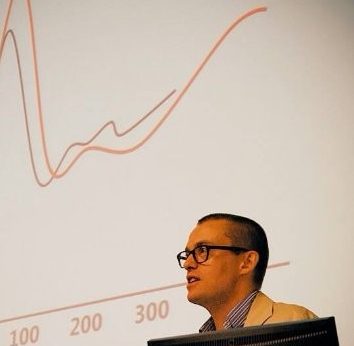-
What are some of the challenges for mental healthcare in Australia, and how could technology help more people get the support they need?
Access to quality care is a major challenge. Australia’s population is dispersed across a very large continent, leaving non-metropolitan areas under resourced. Additionally, not everyone can afford face-to-face treatment. As a result, many health networks struggle to meet the mental health needs of their residents.
That’s why online programs like Black Dog Institute’s myCompass are essential, as they have the power to deliver evidence-based mental health tools to any Australian with internet access, free of charge.
There is now clear evidence that supports the effectiveness of online mental health tools. Can you share a bit about this research?
I was once a bit sceptical of e-health, but the data speaks for itself. Years of solid research tell a clear story – online mental health tools are as effective as face-to-face therapy for people experiencing mild to moderate difficulties. And they are effective for a wide range of issues, from anxiety to depression to everyday life stress. I even use them myself now.
What are some of the tools the Black Dog Institute has developed?
The Black Dog Institute has developed many tools to address a range of issues including mood, anxiety, sleep and workplace health. Excitingly, our largest and most thoroughly evaluated tool, myCompass, is launching version 2.0 this July.
myCompass is a free, self-guided online program that helps users manage many aspects of their mental health. The new version will deliver an even more personalised and engaging experience. In version 2.0, users can build a dashboard of handy tools and visualise their mental health over time using our new generation of activity trackers.
The system will quickly become an online space for people to identify dips in their mental health, discover patterns surrounding these shifts, and immediately access information and evidence-based strategies to turn things around.
There are so many online tools and apps around that claim to help with mood, anxiety and mental wellbeing. How can you tell which ones are credible and effective?
Many tools claim to be 'e-mental health tools', from web-based programs to podcasts to mobile apps. Yet very few of these have been evaluated by experts, or their evaluations fall well below the standards we’d expect in clinical research.
For something to be an effective e-mental health tool it should be able to demonstrate that it improves mental health in rigorous clinical trials.
Some of the most popular apps on the market have little evidence behind them, or overstate the evidence that exists. I encourage everyone to put on their scientist hat and look for facts. Beyond the delightful animations, impressive qualifications and tempting claims, has this tool been evaluated by a major university or research institute? Did it provide the kind of help you are looking for?
If so, consider conducting a quick and simple experiment. Use a tool like myCompass to track how you’re feeling before and after you use the app for the recommended amount of time. If you can see measurable improvements, then that app might be a good fit for you.
What do you anticipate for the future of technology and mental health?
Working at The Black Dog Institute, I am lucky enough to glimpse the future of technology and mental health. Some of our emerging technologies will enable smartphones to identify and address serious mental health issues long before a human would. Some of our collaborators in Silicon Valley are building apps that can measure brain health purely based on everyday phone use.
Future generations will use technology to manage their mental health in ways that are unimaginable to us now. Once we solve problems around privacy and data ownership, the future of technology and mental health will be exciting indeed.
Learn more about myCompass and other online mental health tools at the Black Dog Institute.
Could an online mental health tool help you?

-
How to set up your bedroom for better sleep
The sleep experts share some secrets.
-
5 healthy habits (and how to keep them)
New Year's resolutions are easy to make and hard to keep. Discover how to make healthy habits for 2024.
-
How to feel more connected this festive season
Feeling stressed or lonely this festive season?
-
Life’s a beach
If you want to take it easy at the beach, start by making the trip easier on yourself. Cameron Williams reveals the discoveries that made his time at the beach more enjoyable.
-
Learn how small bursts of movement can have a positive impact on employee wellbeing
-
How to do a digital detox
Reduce screen time with a digital detox, and improve your mental health and wellbeing.
Subscribe to receive the best from Live Better every week. Healthy recipes, exercise tips and activities, offers and promotions – everything to help you eat, move and feel better.
By clicking sign up I understand and agree to Medibank's privacy policy






